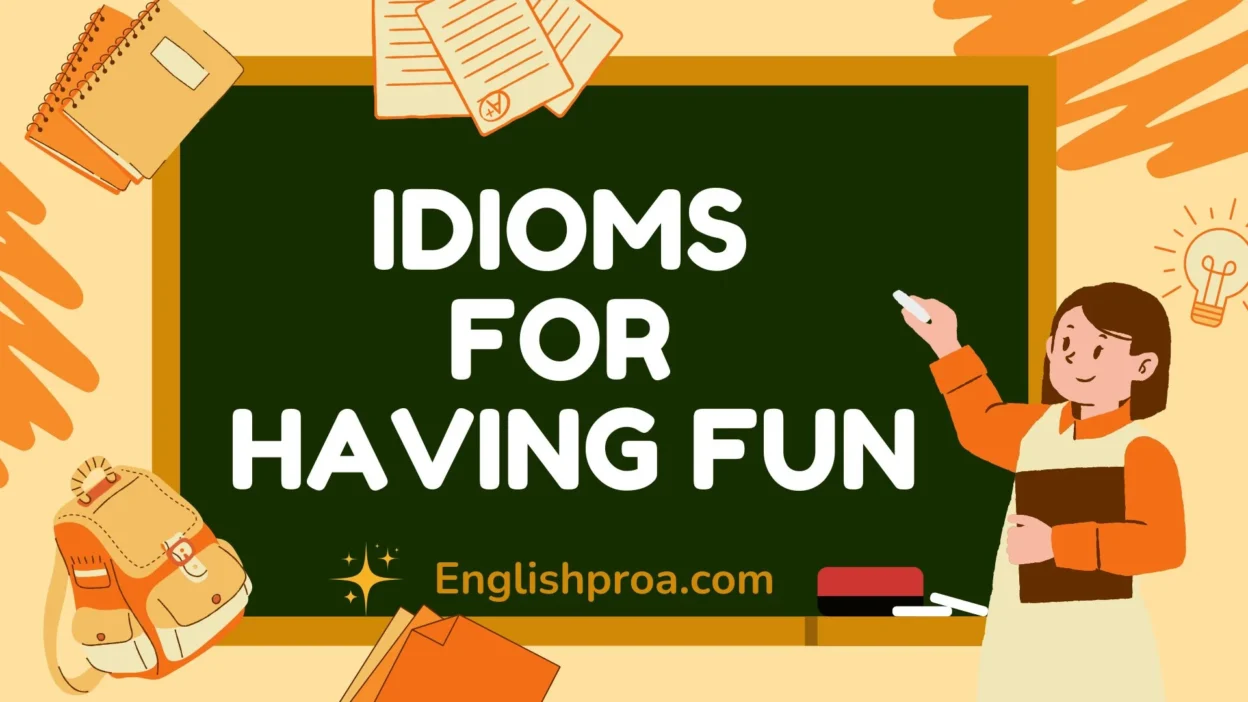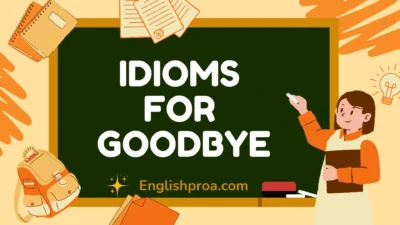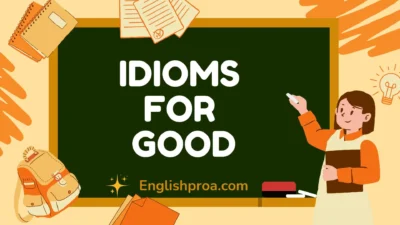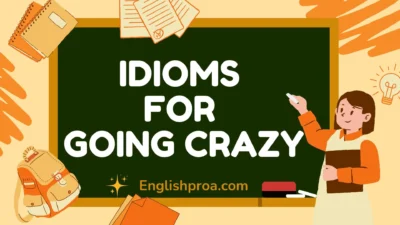Life is meant to be enjoyed, not just endured. And sometimes, finding the right words to capture the spirit of joy, laughter, and carefree moments makes all the difference. Whether you’re writing to a friend, journaling about your weekend, or simply reminiscing over good times, using warm, expressive idioms can help you connect in a more personal and heartfelt way. In this post, we’ll explore 30 beautiful idioms for having fun—each one carefully explained with meanings, examples, and tips on how to use them naturally in conversation.
As a language lover and someone who thrives on real-life connections, I’ve found that using colorful, well-placed idioms not only lights up the conversation but also adds depth and emotion. So, let’s dive in—and bring some more joy into your words.
1. Have a blast
Meaning: To have a great time.
In a sentence: We had a blast at the beach party last night.
Best use: Describing a fun event or gathering.
Not use: Talking about serious or somber occasions.
Other ways to say: Have the time of your life, enjoy immensely, have loads of fun.
2. Paint the town red
Meaning: To go out and celebrate in an energetic way.
In a sentence: Let’s go out and paint the town red this weekend!
Best use: Celebrating with friends.
Not use: Quiet, low-key evenings.
Other ways to say: Party hard, go wild, hit the town.
3. Let your hair down
Meaning: To relax and enjoy oneself freely.
In a sentence: It’s time to let your hair down—you’ve earned it.
Best use: Encouraging someone to unwind.
Not use: When discussing formal or tense moments.
Other ways to say: Unwind, loosen up, be yourself.
4. Have the time of your life
Meaning: To enjoy something to the fullest.
In a sentence: She had the time of her life on her trip to Italy.
Best use: Reflecting on unforgettable experiences.
Not use: For mundane, everyday tasks.
Other ways to say: Live it up, enjoy every moment, have a ball.
5. Be on cloud nine
Meaning: To be extremely happy.
In a sentence: He was on cloud nine after the concert.
Best use: Describing joyful moments.
Not use: For physical activities or group fun.
Other ways to say: Over the moon, ecstatic, elated.
6. Have a whale of a time
Meaning: To have an extremely enjoyable experience.
In a sentence: We had a whale of a time at the amusement park.
Best use: Describing fun group outings.
Not use: Solo, quiet activities.
Other ways to say: Have tons of fun, laugh a lot, go wild.
7. Live it up
Meaning: To enjoy life to the fullest.
In a sentence: She’s really living it up on her vacation.
Best use: Celebratory or carefree situations.
Not use: During responsibilities or stressful times.
Other ways to say: Have fun, go all out, enjoy luxuriously.
8. Kick up your heels
Meaning: To celebrate or have fun, especially by dancing.
In a sentence: Let’s kick up our heels this Friday night.
Best use: Party or dance context.
Not use: For quiet gatherings.
Other ways to say: Dance, party, get loose.
9. Have fun and games
Meaning: Activities that are fun and enjoyable.
In a sentence: It was all fun and games until the storm hit.
Best use: Describing playful moments.
Not use: Serious discussions.
Other ways to say: Merriment, amusement, good times.
10. Cut loose
Meaning: To act freely and with enjoyment.
In a sentence: He cut loose at the wedding and danced all night.
Best use: When talking about letting go.
Not use: When referring to responsibility.
Other ways to say: Break free, unwind, go wild.
11. Let the good times roll
Meaning: To enjoy yourself without worry.
In a sentence: It’s Friday—let the good times roll!
Best use: Kicking off a celebration.
Not use: Somber occasions.
Other ways to say: Start the party, have a blast, celebrate.
12. Have a ball
Meaning: To have a lot of fun.
In a sentence: The kids had a ball at the zoo.
Best use: For playful, exciting moments.
Not use: Formal or professional situations.
Other ways to say: Enjoy greatly, have the best time, play around.
13. Be in stitches
Meaning: To laugh uncontrollably.
In a sentence: That comedian had us in stitches!
Best use: Comedy, funny moments.
Not use: Serious discussions.
Other ways to say: Laugh hard, crack up, giggle nonstop.
14. Horse around
Meaning: To play in a silly, carefree way.
In a sentence: The kids were horsing around in the backyard.
Best use: Childish or light-hearted fun.
Not use: Formal adult settings.
Other ways to say: Mess around, play, fool around.
15. Monkey around
Meaning: To goof off or act playfully.
In a sentence: Stop monkeying around and help me!
Best use: Informal fun or teasing.
Not use: Professional environments.
Other ways to say: Play, joke around, mess about.
16. Go on a joyride
Meaning: To go on a carefree or exciting trip, often in a car.
In a sentence: They went on a joyride along the coast.
Best use: Spontaneous outings.
Not use: Dangerous or illegal contexts.
Other ways to say: Road trip, scenic drive, carefree ride.
17. Play it by ear
Meaning: To go with the flow without planning.
In a sentence: Let’s just play it by ear tomorrow.
Best use: Casual plans.
Not use: Structured or serious events.
Other ways to say: Go with the flow, improvise, see how it goes.
18. Be footloose and fancy-free
Meaning: To be free to do as you please.
In a sentence: She’s footloose and fancy-free after graduation.
Best use: Describing freedom and fun.
Not use: When talking about commitment.
Other ways to say: Carefree, liberated, unbound.
19. Blow off steam
Meaning: To release stress by doing something fun.
In a sentence: He went bowling to blow off steam.
Best use: Stress relief through fun.
Not use: For harming or venting aggressively.
Other ways to say: Let it out, decompress, unwind.
20. Be a barrel of laughs
Meaning: To be very amusing or entertaining.
In a sentence: He’s a barrel of laughs at parties.
Best use: Describing someone funny.
Not use: For serious personalities.
Other ways to say: Comedian, life of the party, hilarious.
21. Be full of beans
Meaning: To be lively and energetic.
In a sentence: The kids were full of beans this morning.
Best use: High-energy people.
Not use: For calm or serious moods.
Other ways to say: Energetic, buzzing, lively.
22. Pop the cork
Meaning: To celebrate (usually with champagne).
In a sentence: They popped the cork after hearing the news.
Best use: Celebrations.
Not use: Everyday occasions.
Other ways to say: Celebrate, cheers, toast.
23. Go bananas
Meaning: To act confused or excited.
In a sentence: The crowd went bananas at the concert.
Best use: High-energy fun.
Not use: Negative or harmful behavior.
Other ways to say: Go wild, lose it (in a fun way), get excited.
24. Hit the jackpot
Meaning: To have great success or fun unexpectedly.
In a sentence: We hit the jackpot with that spontaneous picnic.
Best use: Lucky or joyful situations.
Not use: Gambling talk (unless relevant).
Other ways to say: Score big, luck out, strike gold.
25. Dance the night away
Meaning: To dance for hours and enjoy it fully.
In a sentence: We danced the night away at the wedding.
Best use: Dance-related fun.
Not use: When no dancing is involved.
Other ways to say: Boogie all night, groove, party hard.
26. Get the giggles
Meaning: To start laughing uncontrollably.
In a sentence: They got the giggles during the movie.
Best use: Light laughter.
Not use: Sad or inappropriate times.
Other ways to say: Laugh, chuckle, crack up.
27. Take a joyride
Meaning: To take a fun drive or trip for pleasure.
In a sentence: We took a joyride through the hills.
Best use: Spontaneous trips.
Not use: Unlawful driving.
Other ways to say: Go for a spin, drive for fun.
28. Let it all hang out
Meaning: To be relaxed and uninhibited.
In a sentence: She really let it all hang out on vacation.
Best use: When talking about being free.
Not use: In reserved settings.
Other ways to say: Be yourself, loosen up.
29. Go all out
Meaning: To give maximum effort, especially for fun.
In a sentence: They went all out for Halloween.
Best use: Celebrations.
Not use: Routine tasks.
Other ways to say: Pull out all the stops, go big.
30. Party like there’s no tomorrow
Meaning: To celebrate with enthusiasm and abandon.
In a sentence: They partied like there’s no tomorrow after finals.
Best use: Wild celebrations.
Not use: Serious or somber moments.
Other ways to say: Live it up, go wild, have a blast.
FAQs About Idioms for Having Fun
Q1: Can idioms make writing more personal and engaging?
Yes! Idioms add emotion, culture, and warmth, helping readers connect more deeply with your message.
Q2: Are idioms appropriate in professional writing?
Some are, especially if you’re trying to strike a conversational tone—but avoid overly casual phrases in formal contexts.
Q3: How can I naturally learn to use idioms?
Reading stories, watching films, and keeping a personal list of idioms can help you integrate them effortlessly.
Q4: Do idioms vary in different cultures?
Absolutely. Some idioms are region-specific, so it’s always good to check the meaning before using them in global settings.
Q5: What’s the best way to teach idioms to kids?
Use fun contexts, relatable stories, and visual cues—kids learn best when they can connect idioms to real-life fun.
Conclusion
Having fun is a universal experience—but describing it in a meaningful, vibrant way? That’s where idioms shine. Whether you’re recounting an epic weekend, writing a cheerful message, or just adding color to your storytelling, these 30 idioms for having fun are your go-to tools. From “having a blast” to “letting the good times roll,” each one opens up a new way to share joy, laughter, and the beautiful chaos of living.
As someone who’s spent years soaking in language and the little magic moments of life, I can say with confidence: the more expressive we are, the closer we feel to each other. So, next time you’re enjoying life, reach for one of these idioms—and let your words dance, laugh, and shine.





